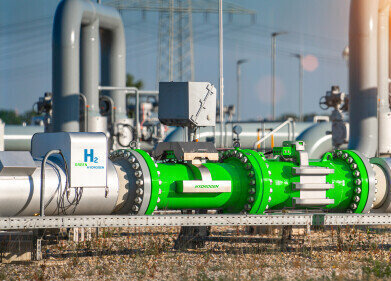Biofuel industry news
How Do You Test for the Quality of Lubricants?
Feb 24 2022
From food processing plants to oil and gas refineries, mechanical lubricants are used to maintain equipment across a wide range of industries. When moving parts are involved, lubricants play a critical role in maximising efficiency, minimising unplanned downtime and extending the lifespan of high-value assets.
Quality testing is an important part of achieving these goals, with assays carried out by lubricant manufacturers and end users. Below, we take a closer look at some of the different methods used to test the quality of lubricants.
Analytics-based lubricant monitoring
Artificial intelligence (AI) technology and the industrial internet of things (IIOT) have revolutionised industrial asset management, including lubricant quality testing processes. A recent partnership between Shell and US-based international industrial service company Baker Hughes is the latest example, with engineers using machine learning and real-time sensor data to develop an analytics-based lubricant condition monitoring solution called VitalyX for the marine sector.
The lubricating oil monitoring platform takes a health-based approach to asset management, actively testing up to 15 different quality parameters using ASTM specifications. Results are used to generate an in-depth picture of asset health, with the ultimate goal to maximise uptime, performance and profits.
“We are delighted to bring the advanced capabilities of Shell Remote Sense to our marine customers in partnership with Bently Nevada. Shell understands the importance of good lubricant management and its impact on equipment life,” says Marcus Schaerer, General Manager of Services & Technical at Shell Marine. “With Shell Remote Sense, ship owners and operators can continuously monitor oil conditions across multiple components on a vessel. Customers will have vital and predictive information at their fingertips to make proactive decisions on maintenance planning and extend equipment life.”
The advent of portable test kits
Portable test kits have ushered in a new era of lubricant quality testing, allowing operators to analyse lubricating oils in real-time. Over the past few years demand for portable test kits has soared, with products like the Unitor™ Ferrous Wear Meter (FWM) by Wilhelmsen offering a fast and simple way to detect abrasive wear particles in lubricating oil.
The Unitor™ EasyShip Water Test Kit, also manufactured by Wilhelmsen and designed for the maritime sector, is used to detect and quantify water content in lubricating oils and fuels. This allows shipping companies to detect water contamination in lubricating oils, an issue that can lead to severe damage in engines and hydraulic systems. Keeping tabs on water content also helps to prevent the growth of damaging microbes in lubricating oils and maintain the stability of additives.
Find out more about the importance of lubricant quality testing and the different techniques used to analyse key parameters in ‘A Complete Guide to Lubricants - Types, Quality & Testing.'
Digital Edition
PIN 26.1 Feb/Mar 2025
March 2025
Analytical Instrumentation - Elemental Analysis for Quality and Process Control at Refineries, for Lubricants and Wear Metals in Engine Oils - Synthetic Lubricants: New Developments - Scaling...
View all digital editions
Events
Mar 17 2025 Houston, TX, USA
Mar 18 2025 Beijing, China
Mar 19 2025 Manila, Philippines
Mar 20 2025 Brussels, Belgium
Mar 20 2025 Guangzhou, China






.jpg)



.jpg)








